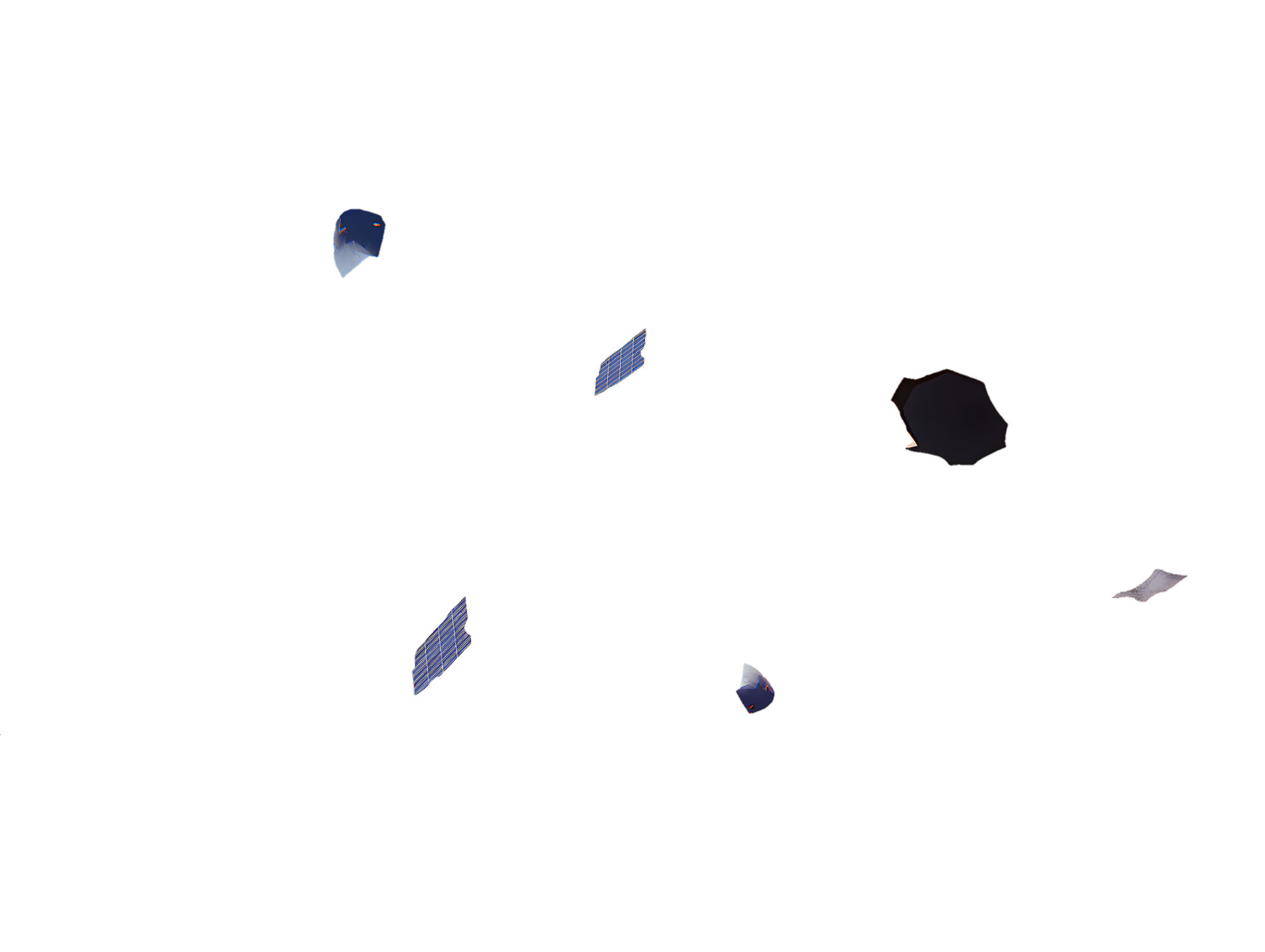DeOrbiting
space debris





the methOd
We plan to deorbit space debris using a high-powered laser system. The laser will precisely target the debris, heating and ablating its surface. As the material on the debris vaporizes, small fragments are ejected in the opposite direction of its trajectory, creating a reaction force that gradually slows down the debris. Over time, this deceleration alters the debris’s orbit, causing it to spiral downward until it re-enters the Earth’s atmosphere and burns up.
benefits
We plan to deorbit space debris using a high-powered laser system. The laser will precisely target the debris, heating and ablating its surface. As the material on the debris vaporizes, small fragments are ejected in the opposite direction of its trajectory, creating a reaction force that gradually slows down the debris. Over time, this deceleration alters the debris’s orbit, causing it to spiral downward until it re-enters the Earth’s atmosphere and burns up.
the methOd
We plan to deorbit space debris using a high-powered laser system. The laser will precisely target the debris, heating and ablating its surface. As the material on the debris vaporizes, small fragments are ejected in the opposite direction of its trajectory, creating a reaction force that gradually slows down the debris. Over time, this deceleration alters the debris’s orbit, causing it to spiral downward until it re-enters the Earth’s atmosphere and burns up.
benefits
We plan to deorbit space debris using a high-powered laser system. The laser will precisely target the debris, heating and ablating its surface. As the material on the debris vaporizes, small fragments are ejected in the opposite direction of its trajectory, creating a reaction force that gradually slows down the debris. Over time, this deceleration alters the debris’s orbit, causing it to spiral downward until it re-enters the Earth’s atmosphere and burns up.

